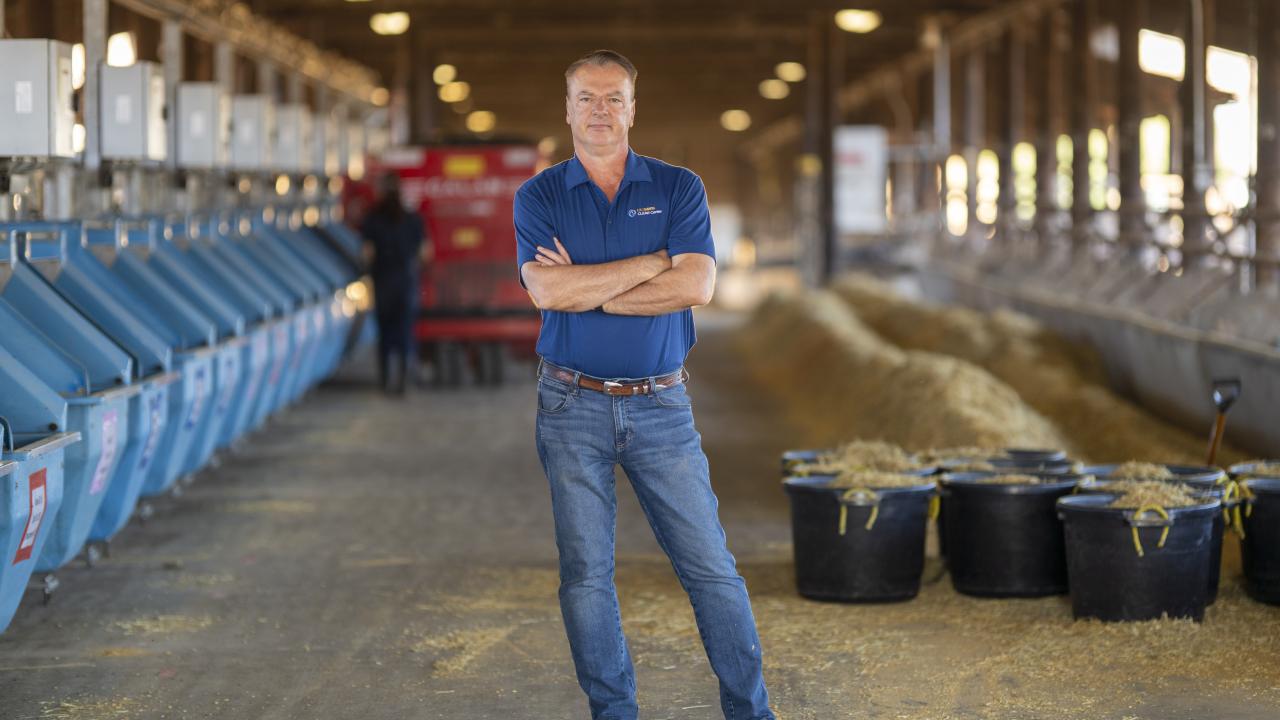
Setting the Record Straight: Methane, Agriculture, and Misrepresentation
If I had a dollar for every time a report put words in my mouth, whether it’s about the importance of methane, the applicability of GWP*, or how research is funded in academia … well, I wouldn’t have to worry about funding at all.
For the sake of a spat of misinformed articles, that take liberties with my perspectives, I want to clear up some things about me and how I view the intersection of animal agriculture and sustainability.
Many people try and distort what I say by taking bits and pieces of comments and mashing them together to fit their narrative. It seems to be forgotten that I am a researcher at a public institution. I am a teacher. I am a mentor. I am father and husband. While many will see me as a looming and outsized figure standing in the way of their ideological agenda, I am a college professor and researcher at a land grant university that wants to make this world better. I never expected to become the subject of personal attacks in public discourse. Healthy debate about science and policy is vital — but when that shifts from critique of ideas to attacks on individuals, we all lose.
So, for the sake of clarity, I want to go on record and say a few things that are getting twisted. First and foremost:
We need to reduce methane from animal agriculture to limit warming that is causing climate change. At the same time, we must produce more food than ever before to feed a growing global population, including nutrient-rich animal-sourced foods that play a vital role in human health and development.
These two realities aren’t in conflict — they’re a challenge we must tackle together. Mitigating methane is a way to improve efficiency on farm, as we know that methane is a result of wasted energy in animals and some solutions have shown increased intake and output. What’s more, reducing methane from animal agriculture is one of the most actionable and immediate ways we can contribute to climate goals — without compromising food security, which is why I have dedicated my career to studying ways in which to reduce greenhouse gases in agriculture.
In fact, I’ve spent more than two decades working to reduce pollutants from livestock systems through science-based solutions that improve animal welfare, worker safety, productivity, and environmental performance. I am on the UN FAO Leap Steering Committee and an appointed member of the USDA Air Quality Task Force. I have 150 publications on livestock and sustainability. I collaborate directly with producers around the world because I support agriculture and believe in the people who make our food system function.
That’s why I find it particularly troubling when farmers and ranchers are relentlessly blamed in the climate conversation. Producers must be part of the solution — because without them, there is no path forward. Shutting them out or disparaging their role not only stalls progress, but it’s also extremely counterproductive. These are problem-solvers who, when brought in as partners, can and do deliver real results.
Alarmist headlines and accusatory narratives don’t move us closer to solutions; they shut down the possibility for constructive dialogue. Animal-sourced foods will continue to be part of diets across the globe, regardless of individual preferences. And despite what many think, I do not control that, one way or another.
The real work lies in making production better—not vilifying it. I don’t write the rules on what people eat. I work to ensure that if they choose to eat animal products, it’s done with the lowest possible environmental impact. So, the question isn’t whether we include farmers in the climate fight—it’s how soon we recognize that we can’t do it without them.
Bashing farmers and ranchers for doing exactly what society needs them to do – produce food full of essential nutrients and minerals – is detrimental. What if you were to be accosted every single day for driving your car? For turning on your lights? For flying? Our carbon consumptive habits result in significant climate impacts, yet you may ask, “What else am I to do?”
Blaming the pillar of our society that feeds us is not the answer. That I know for sure. Blaming me, doesn’t seem very productive either.
I’m no stranger to negative articles targeting me or my research. I’ve seen writers contort facts and science to meet their perspectives and agendas. That’s nothing new. Don’t get me wrong, I think debate is healthy. Scrutiny is part of the scientific process. But turning a researcher into a target—rather than engaging with the research itself—sets a dangerous precedent.
There has been much talk about GWP* in the media lately as various countries consider its validity. To be clear, the IPCC has lent the basis of the metric credibility, despite what writers have shared. It was created and developed by researchers not involved in animal agriculture. But as I’m clearing some things up, I want to share this about GWP*: If methane emission rise it will show that related warming dramatically rises. If emissions decrease, it will show related warming is less. This makes sense, as one scenario results in added methane to the atmosphere, while another sees a reduction of methane in the atmosphere. It’s a completely viable matrix to judge the livestock sector by. It does not mean we need to abandon GWP100 or other metrics, but having more information is extremely valuable as regions make decisions on food production. Using GWP* doesn’t take away from the need to reduce methane, and in mind, could really spur a reduction as we show efforts to implement climate solutions are not only necessary, but have tremendous impact. It’s part of a good story.
I want to say that in time when long-standing institutions are transitioning the climate fight to the public, it’s even more critical that our public institutions and land grant institutions step up and find feasible solutions that not only allow countries to produce more food, but in a more sustainable way.
Again, I want to reiterate farmers are uniquely positioned to be part of the climate solution. In part, because they manage critical natural resources such as land and water. Through practices like rotational grazing and improved manure management they can reduce emissions and even sequester carbon in soils. But also, because farmers are essential innovators—they are constantly adapting to changing conditions—and their firsthand knowledge makes them valuable partners in developing practical, scalable solutions. With the right tools and support, agriculture can shift from being a source of emissions to a powerful climate ally. And this is why I will never apologize for working alongside them. They are partners, not villains in this climate fight.
I remain committed to addressing climate change, and I believe farmers and ranchers and those in the agricultural industry are essential partners in that mission. I welcome constructive criticism and debate—but I also believe we must hold ourselves to a standard of respect that encourages solutions, not silences them.
Farmers are part of the climate solution. And so are researchers, like me. And we’re not going to solve climate change by vilifying the people that are trying to solve it. That’s the conversation I’d like to have. The rest is just noise. And damn anyone who thinks otherwise.

Can You Trust Private Funding?
Agricultural research receives nearly 3X the amount public funding from the private sector.
